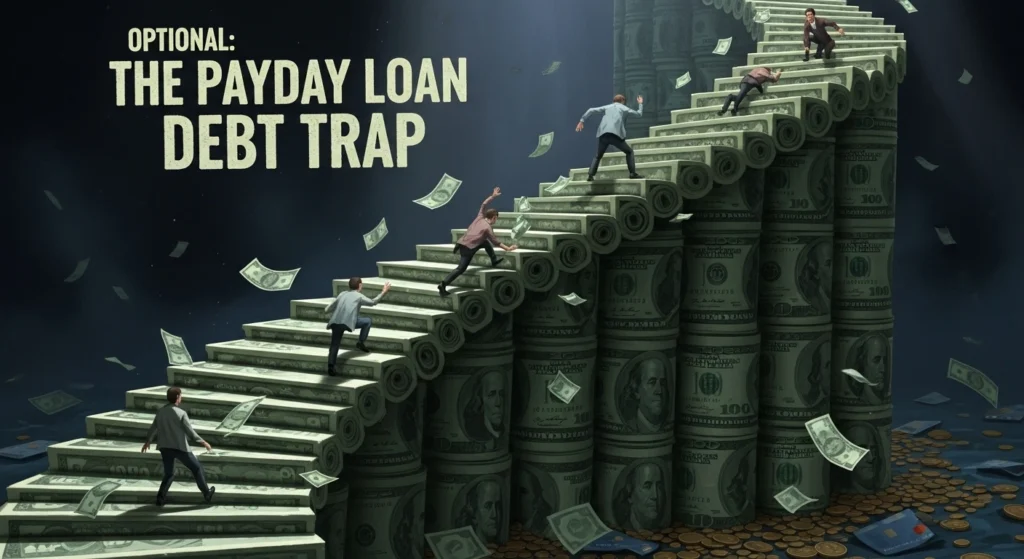Payday Loans and Alternatives are a common topic when financial emergencies strike. When they do, it’s natural to look for a quick solution. For many people, a payday loan seems like a simple answer to a short-term cash shortage. These loans, however, come with serious risks that can trap borrowers in a cycle of debt. Understanding how payday loans work, their potential downsides, and, most importantly, what safer loan alternatives are available, is crucial for anyone facing a financial crunch.
How Payday Loans Work

A payday loan is a small, short-term, unsecured loan that you typically pay back with your next paycheck. The process seems simple: a lender gives you a small amount of money, usually a few hundred dollars, and in return, you write a post-dated check for the full amount plus a fee. The lender then cashes that check on the agreed-upon date. The problem lies in the fees. These are often expressed as a percentage of the loan, which may seem small, but they translate into extremely high interest rates, sometimes as high as 400% APR or more on an annualized basis (source). For example, a fee of $15 for every $100 you borrow might seem manageable. However, if you have to pay that back in two weeks, that’s a much higher interest rate than a typical bank loan.

The quick access to cash is appealing, but it comes with a significant catch. If you can’t pay the loan back on time, you often have the option to “roll over” the loan, meaning you pay the fee again to extend the repayment period. This is where the cycle of debt begins. You end up paying fees on top of fees, and the original loan amount never gets any smaller.
Smarter Alternatives to Consider
Instead of turning to a payday loan, consider these safer and more sustainable options.
Credit Unions and Small Banks

Many local credit unions and community banks offer small-dollar loans with much lower interest rates than payday lenders. These loans are often designed to help people build credit and manage their finances responsibly. They may require a longer application process, but the long-term benefits are worth the extra time.
Borrowing from a Friend or Family Member

While this option requires careful consideration and clear communication, it can be a zero-interest solution. If you choose this path, it is best to treat it like a formal loan, writing down the terms and a clear repayment schedule to avoid misunderstandings. See CentSara’s guide on lending money to friends and family for practical tips.
Payment Plans with Creditors

If your financial struggle is due to a specific bill, like a medical expense or a utility bill, contact the company and explain your situation. Many companies are willing to work with you to set up a payment plan that fits your budget. This is often a much better solution than taking out a high-interest loan to pay off a single bill.
Cash Advance from Your Employer

Some employers offer paycheck advances on a future paycheck. This is typically a no-fee option that can get you through a tough spot without accumulating debt. It’s a good idea to check with your human resources department to see if this is an option for you.
Nonprofit Credit Counseling

Organizations like the National Foundation for Credit Counseling (NFCC) offer free or low-cost financial counseling. A counselor can help you create a budget, negotiate with creditors, and explore debt management plans. They provide a supportive and knowledgeable resource to help you get back on your feet without resorting to high-cost borrowing. You can also read CentSara’s article on free financial help resources.
Ultimately, the best way to handle a financial emergency is to plan ahead. Building a small emergency fund, even just a few hundred dollars, can create a buffer against unexpected expenses. When you have a buffer, you don’t have to choose a quick fix that could cause more trouble later.
